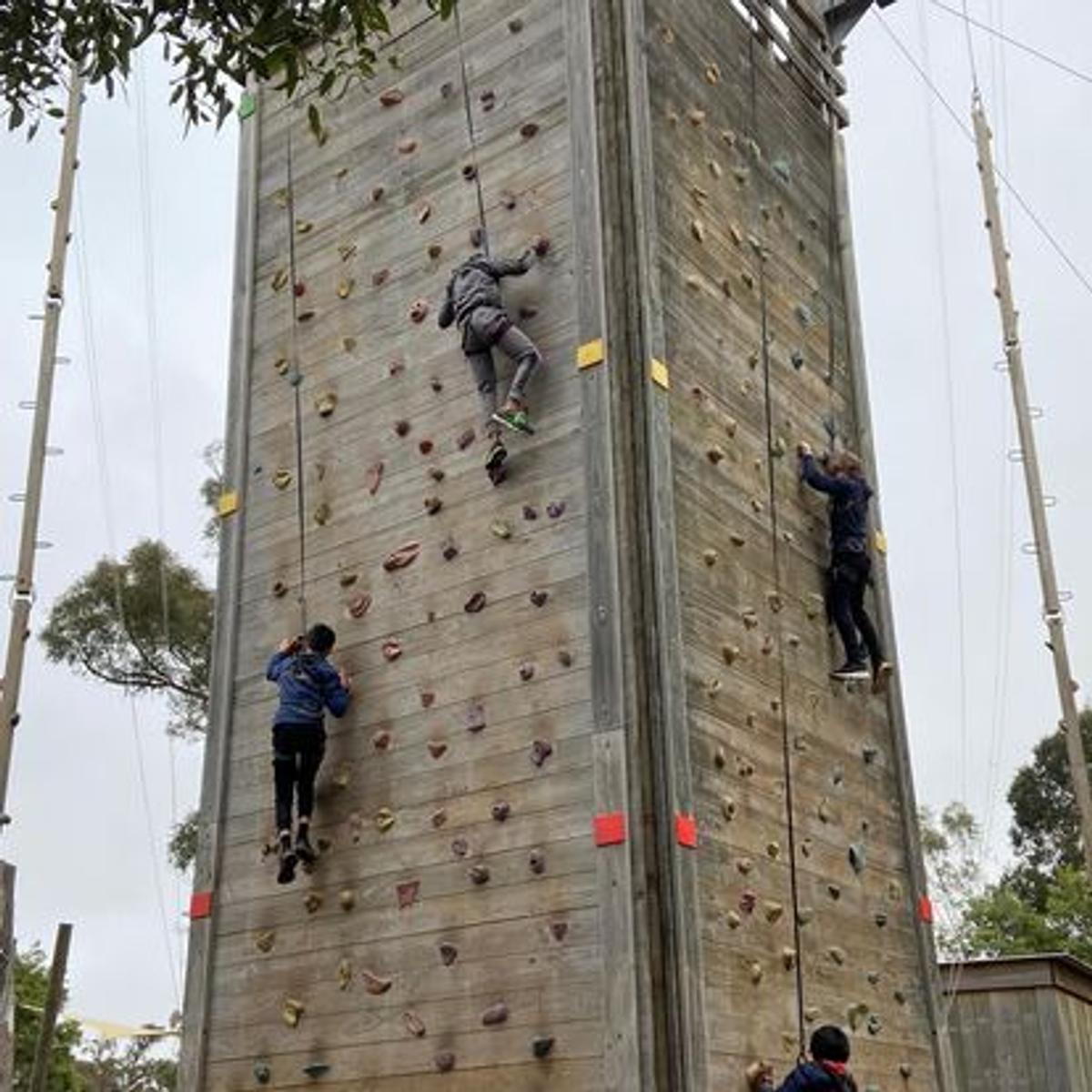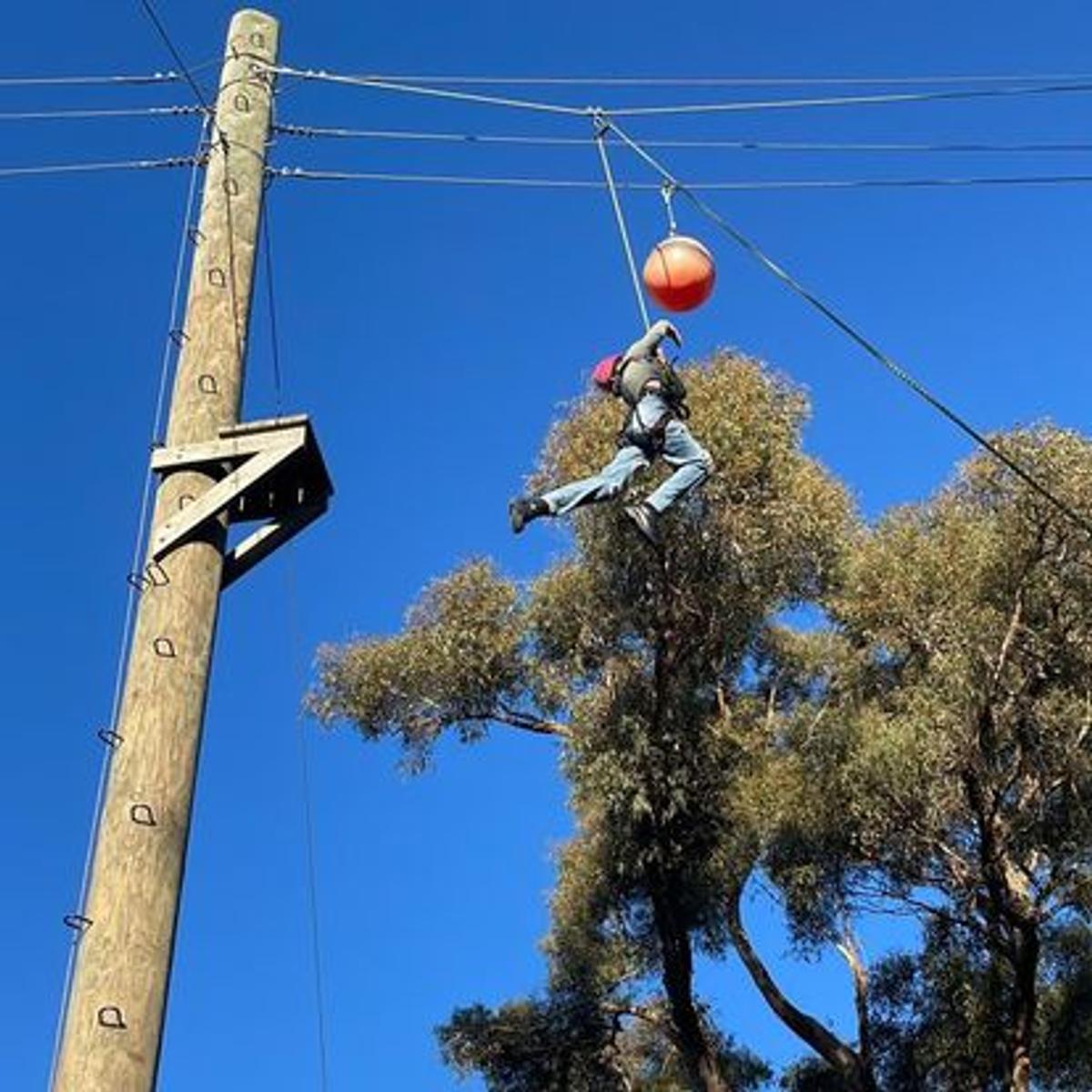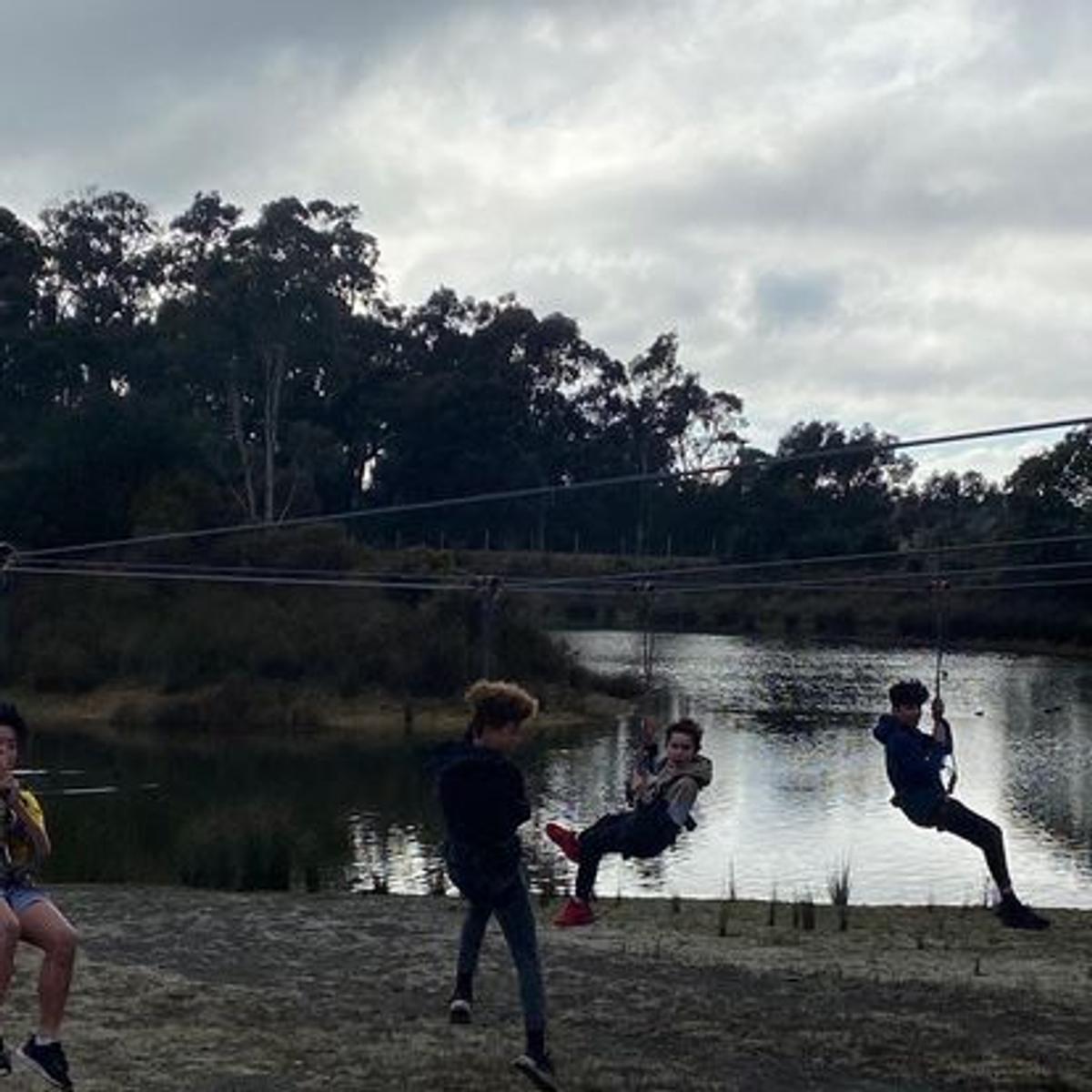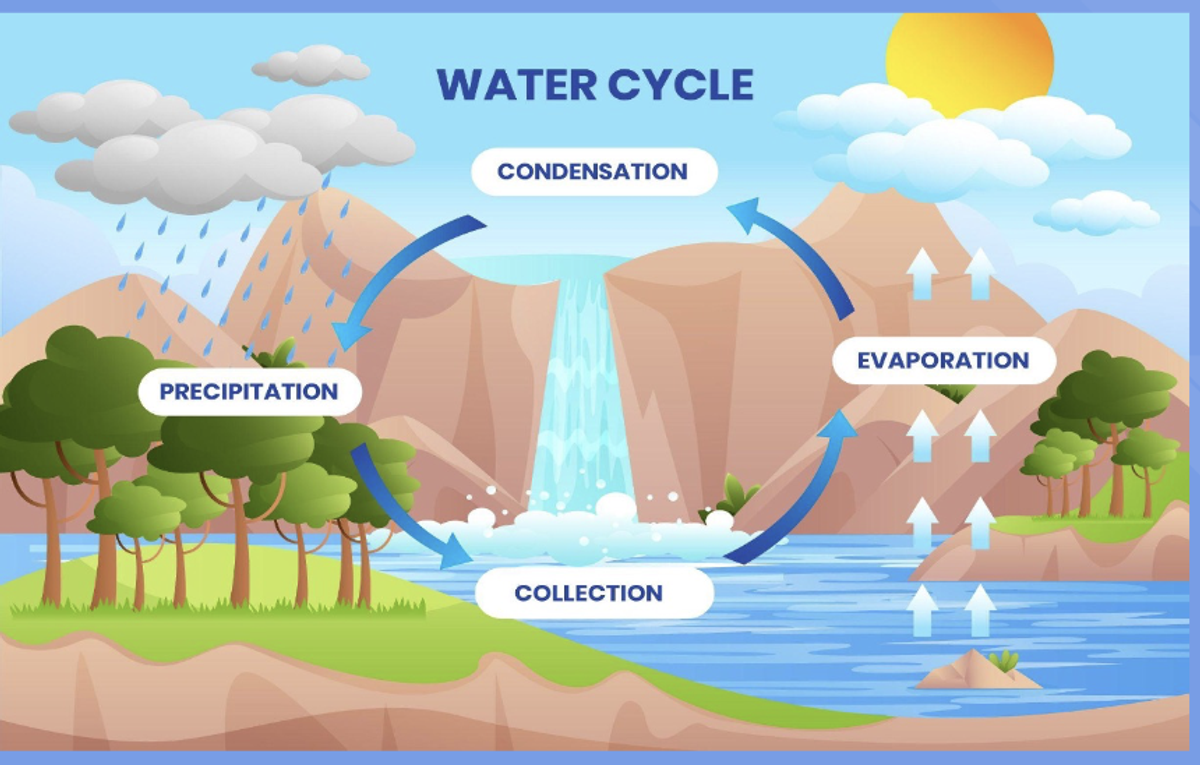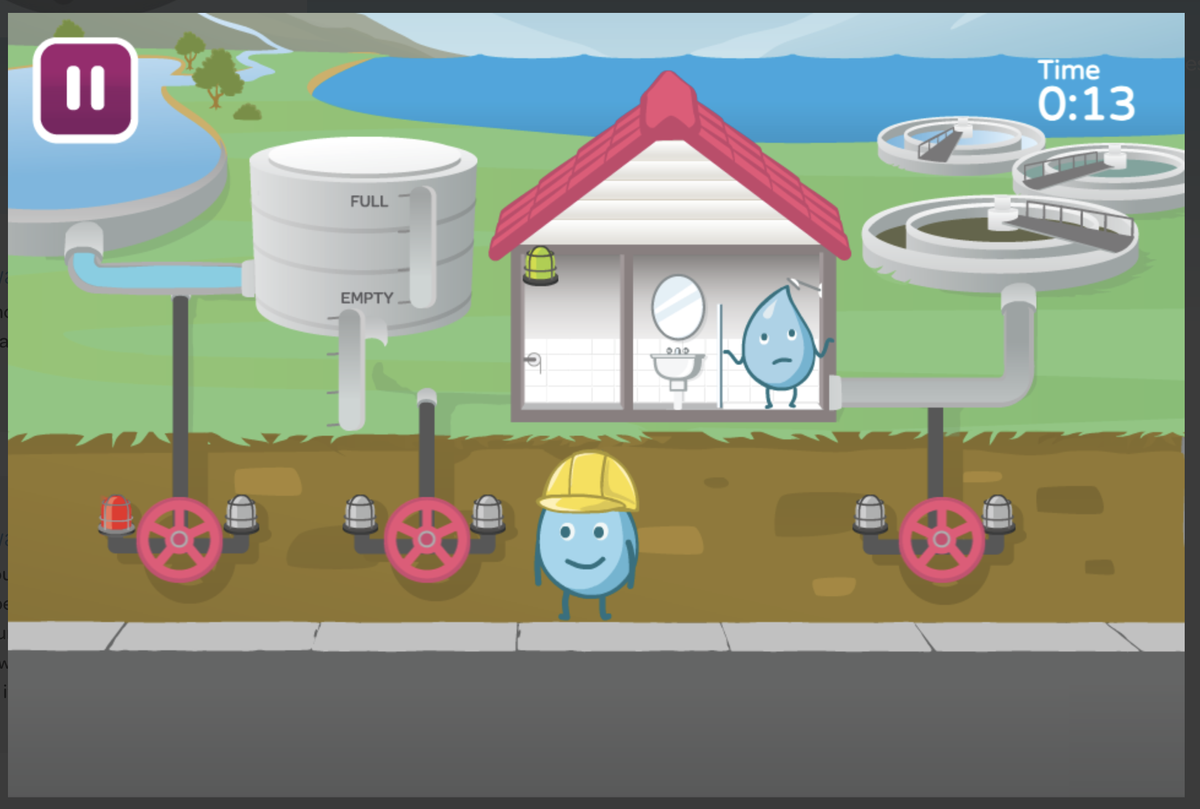Year Seven

Year Seven Camp
Welcome back to our Year Seven campers. At PGL Campaspe Downs, students engaged in adventure style activities that focused on building resilience, leadership skills, and teamwork. It was so good to see so many students take a step outside of their comfort zone and engage in feats they didn't think possible.
Students jumped from poles 15 metres in the air, steered a canoe in freezing cold water, swung from 20 metres in the air, ziplined across a lake, and used the bush setting in a giant game of laser tag. We're sure this will be a camp they won't forget!
We are extremely proud of students behaviour and attitude while we were away and should be applauded for their exemplary effort in all aspects of the camp.
Mathematics
How quickly Term Three has crept up on us with the Year Seven's beginning to embrace algebra.
The term began with an introduction to algebra. Students shared ideas why they think algebra is needed in the curriculum and why it is important in the real world. They linked algebra to designing and engineering of numerous appliances in the home for example how does a picture come up on the screen when you switch the TV on, or how do we draw house plans or how do we calculate the distances between different planets etc.
Once students were able to understand the importance of using formulae to calculate and make assumptions in algebra, they became motivated to study the topic. We began with understanding how pronumerals are incorporated into expressions, formula and equations. They differentiated between expressions and equations. Students then worked on evaluating expressions by substituting values for one variable and then moved on to substituting values for more than one pronumeral.
As the weeks progress, we will continue to work on simplifying expressions, multiplying and dividing terms and applying the associative, commutative and distributive laws to algebraic equations.
Spanish
I am delighted to update you on your child's exciting progress in Spanish class! This term, our Year Seven students have been making tremendous strides in mastering two vital language concepts: subject pronouns and present tense conjugations.
Subject Pronouns: We have been exploring subject pronouns in Spanish, which play a key role in effective communication. Your child has explored how to use pronouns like "Yo" (I), "Tú" (You), "Él/Ella/Usted" (He/She/You - formal) to express who is performing the action in a sentence.
Present Tense Conjugations: Our students have been immersed in the world of -ar, -er, and -ir verbs and their present tense conjugations. They have practiced forming sentences with confidence, using verbs like "bailar" (to dance), "comer" (to eat), and "vivir" (to live) in different subject forms.
Humanities
As we continue to progress through the Term, Year Seven students are continuing to engage in developing a shared understanding of the Statement of Inquiry- "A society’s access to freshwater depends on responsible consumption and their ability to revolutionise conservation techniques."
Students have been able to engage in the essential learning to understand the water cycle, accessibility of freshwater, where it is located, and, the very scary thought, that Earth may run out of freshwater in as little as 40 years time. Many were shocked to hear this, recognising that this is in their lifetime! Students are encouraged to think analytically and critically at this statistic and explore water saving techniques in use now. Students will continue to explore these as they look towards developing their assessment piece towards the end of the term.
Drama Delights: Unveiling the Talented Actors of Year Seve!
Year Seven students at our school have been passionately delving into the world of Drama, unleashing their creativity and honing their theatrical skills with remarkable enthusiasm. The budding thespians have been exploring the fascinating realm of Drama through twelve key elements, and the skills they are acquiring extend far beyond the stage, with valuable cross-over into other subjects and everyday life.
The Drama curriculum has been carefully designed to introduce students to the twelve essential elements of Drama: Character, Role, Situation, Setting, Circumstances, Relationships, Voice, Movement, Focus, Tension, Space, and Time. These elements not only enrich their understanding of the theatrical arts but also cultivate various transferable skills that can be applied in different contexts.
By investigating characters and roles from different plays and situations, students are developing empathy and understanding, key skills for interpreting literature in English classes and comprehending historical events in History classes. The ability to step into different characters' shoes enables them to explore perspectives and cultures, fostering a sense of inclusivity and appreciation for diversity.
In Drama, students actively experiment with settings and circumstances, honing their creative problem-solving skills. This creativity carries over into subjects like Art and Design, where they learn to think innovatively and express themselves through various mediums. Additionally, exploring thought-provoking situations in Drama encourages critical thinking, a skill that is valuable in all academic subjects and essential for making well-informed decisions in everyday life.
Effective communication lies at the heart of Drama, as students work on vocal projection, articulation, and expressive movements to convey emotions and intentions. These communication skills extend into language subjects such as English, where students enhance their public speaking abilities, and modern languages, where they develop fluency and confidence in expressing themselves in foreign languages.
The Drama class becomes a breeding ground for fostering meaningful relationships and teamwork. Collaboration and trust-building exercises create a supportive environment for students to work together cohesively. These skills are not only crucial for group projects in various subjects but also for building strong interpersonal relationships outside of the classroom.
Moreover, Drama helps students manage tension and build suspense in their performances, creating engaging presentations that captivate audiences. This skill of holding attention can be applied in areas like presentations in Science or persuasive arguments in Social Studies.
Finally, the appreciation of space and time in theatrical storytelling nurtures a sense of discipline and time management. This sense of discipline transcends into organisation skills, aiding students in managing their study schedules effectively and balancing extracurricular activities.
In conclusion, the Drama class not only enables Year Seven students to flourish as performers but equips them with an array of invaluable skills applicable across subjects and daily life. As these young actors continue their Drama journey, they are destined to shine not only on the stage but also in various academic pursuits and personal endeavours. Bravo, Year Seven Drama enthusiasts! Keep up the outstanding work and let these skills illuminate your path to success!
Wood Technology
This Term, Year Seven Wood Technology students have been exploring health and safety in the Wood Technology room. Year Seven students have been learning to identify hazards and their potential risks and how to prevent injury to ourselves and others. Student have also learned the Safe Operating Procedures and the steps needed to be taken when using wood working tools such as the Tenon Saw and Bevelled Edge Chisel safely.
In the coming weeks, students are beginning the process of constructing their products for the Term, the Cerberus Lamp. Students will use the Design Process to plan, produce and evaluate their products and practice their newfound wood working skills.

